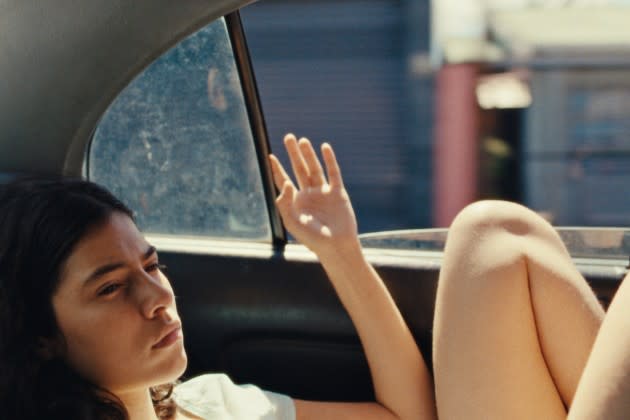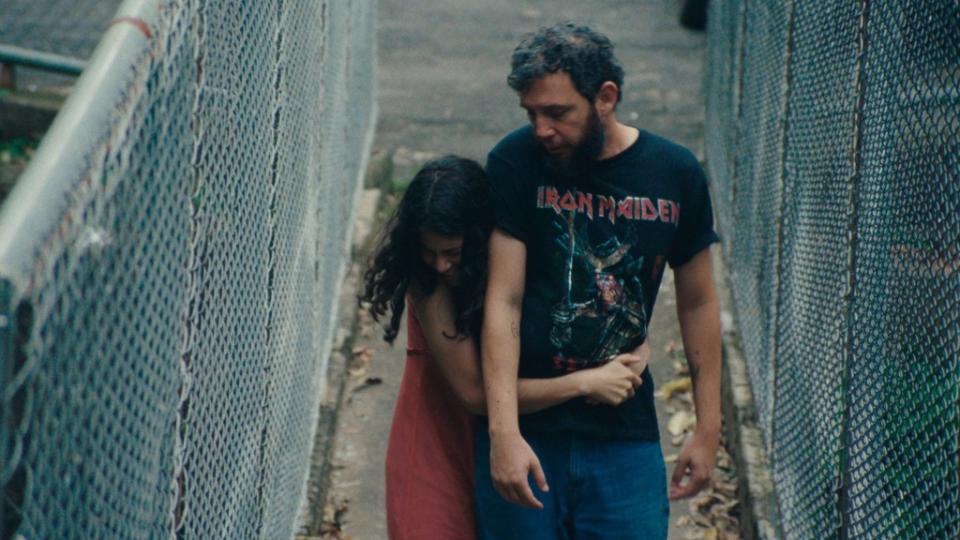Valentina Maurel’s Thessaloniki Winner ‘I Have Electric Dreams’ Explores Complexities of Family Relationships, Sexual Awakening
- Oops!Something went wrong.Please try again later.

Valentina Maurel’s coming-of-age drama “I Have Electric Dreams” has proved a major winner on the international festival circuit and a daring work that further highlights Costa Rica’s burgeoning film scene. The film won the prizes for director, actress and actor at the Locarno Film Festival, and San Sebastián Film Festival’s Horizons Award. The film continued its winning streak this week at the Thessaloniki Film Festival, where it took home the Golden Alexander for best feature film, and leading man Reinaldo Amien Gutiérrez also won the award for best actor.
The film follows Eva, a restless 16-year-old girl who is experiencing her sexual awakening and is desperate to leave the house she shares with her mother and younger sister and move in with her estranged father, a troubled creative artist who paints, sculpts, writes poetry and drinks too much.
More from Variety
The film is a personal work that explores darker aspects of family relationships, Maurel explains.
“It’s inspired by the things that I know, from my own life, but it’s not an autobiographical film. It’s a film I wanted to do about the complexities of family relationships, about violence. And I especially wanted to make a film that wasn’t about Costa Rican culture or what it is to live in a tropical paradise in Central America.”
She wanted to instead tell a story that could happen anywhere. “Sometimes when you come from a small country you feel the obligation, the responsibility of representing it culturally in order to interest European or North American audiences. So I thought, I will try not to do that.”

In telling Eva’s story and the often shocking and disturbing events she experiences, Maurel sought to present an honest portrait of the complexity of life free of moral judgement. “I felt that life is way more complicated. I wanted to be faithful in showing that life can be very blurry, and that’s what makes situations complicated for everybody.”
She adds: “I wanted the characters to be complex and I wanted them to be in situations in which the spectator is not really sure about the difference between right and wrong because that’s how it is in everyday life. If we always have the moral distance to judge good from wrong, then life would be easier.”
Maurel was also eager to focus on a generation of people in Costa Rica that have broken with the country’s established social norms – people that are more modern, artistic and bohemian.
“Costa Rica is a country that has a strong middle class – it’s starting to disappear but it’s still there. I wanted to be critical about this situation of privilege that we have in Costa Rica. If you compare it to other countries in the region, we are in a situation of privilege, but that doesn’t mean that there aren’t very machista and violent things happening.
“We tend to forget this because the situations in the neighboring countries are so bad. We believe we are very advanced, but there is still a lot of work to do.”
Noting that Costa Rica lacks a film acting tradition, Maurel auditioned first-time performers and stage actors. While she saw everybody that she could, it was important for her to find people familiar with San José and the city’s middle class lifestyle and art scene.
She found the perfect leads in Daniela Marín Navarro and Amien. While Amien is an experienced stage actor, Marín is a newcomer to the craft.
“Daniela had never acted before. She was what I would call a typical pandemic teenager. She was very bored at home and didn’t know what to do with her life. She saw the casting ad and she came – and it was really kind of a miracle that she came.”
Maurel, who is based in Brussels, made “I Have Electric Dreams” as a Costa Rican-Belgian-French co-production with Wrong Men in Brussels and Paris-based Geko Films. It was a welcomed structure, particularly in view of the difficult financing situation in Costa Rica, which nevertheless has a limited film fund and tax rebate program.
“It’s a paradox because Costa Rican cinema has never been better,” she adds. “We have lots of films in festivals. … There’s a big boom. Something is happening. It’s really exciting and I think it will continue this way because there are a lot of young people that are very motivated by film.”
Looking forward, the director plans to continue the story of Eva’s family in her next film. She is currently writing a screenplay for a follow-up that will focus on the relationship between Eva and her mother Anca, played by Vivian Rodríguez Barquero.
Noting that she was frustrated about having to cut much of Anca’s story in the film in order to focus on this particular story, Maurel is eager to explore the character more in another movie, which in addition to focusing on the mother-daughter relationship will also include “complex characters and maybe a little bit of a raw take on relationships between women.”
Best of Variety
Sign up for Variety’s Newsletter. For the latest news, follow us on Facebook, Twitter, and Instagram.

